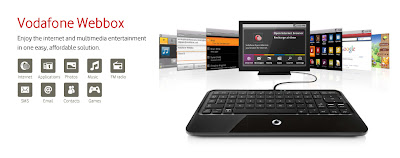Samsung Chooses Intel for Next Android Tablets
Unnamed sources have
confirmed with Reuters that Samsung has
decided to use Intel's 32 nm "Clover Trail+" Atom mobile chip for at
least one version of its Galaxy Tab 3 10.1. The company is also
reportedly unveiling new ATIV tablets using Intel chips at a June 20 event in
London. Currently it's unknown if the Clover Trail-based Galaxy Tab 3 will be
showcased at the same event.
Reuters reports that it's currently unclear
if South Korea-based Samsung plans to use Intel chips in other versions of the
10-inch Galaxy Tab, or if the company plans to use its own Exynos 5 chip. Both
Intel and Samsung declined to comment on the report, Reuters said.
Intel introduced its line of Clover Trail
Atom chips last fall, reporting that they are targeted at low-powered Windows 8 hybrid
devices, or rather form factors that serve both as tablets and laptops. However
the Clover Trail-powered Galaxy Tab 3 10.1 will be playing host to Android
instead, a trend that seems to be increasing in the second half of 2013.
PCWorld reports that last week two benchmarking sites
posted test results of a Samsung tablet sporting an Intel Clover Trail chip and
Android 4.2.2. This tablet was designated as the Santos 103 and with
the product number GT-P5200. The SamsungGalaxy Tab 2 was dubbed as the GT-P5100
before it was released.
According to the report, both
benchmarking sites revealed that the tablet will have a 1280 x 800 resolution,
and an Intel SoC running in the 800 MHz to 1.6 GHz range, which is within the
specs of Intel's Atom Z2560 chip. This SoC, along with the Z2580 and Z2520, is
optimized for Android, and Intel has developed new firmware, drivers and
middleware to enhance Android power management and security.
"The processors include the Intel
Graphics Media Accelerator for compelling and realistic 3D gaming experiences,
1080p HD video, and crystal-clear graphics. WUXGA 1920x1200 display support is
ideal for the larger screens of tablets," Intel states (PDF).
This deal with Samsung should be welcome
news for Intel who is struggling to enter smartphone and tablet markets that
have adapted to ARM low-power systems. Even more, Intel is facing ARM in the
server market as enterprises are looking for a greener future that will cut by
using low-power, high performance solutions. However for now, Intel will have
the upper hand in servers and data centers.
"With Atom, you don't have to change
your existing infrastructure, your code, your software vendors and your
middleware vendors," said Cody Acree, director of research at Williams
Financial. "You can just use Intel and continue with your existing
architecture."



Comments
Post a Comment
Be sure to check back again because I do make every effort to reply to your comments here. Karibu :)